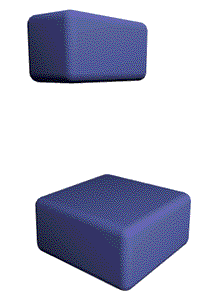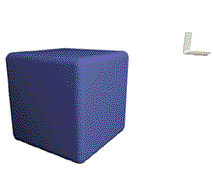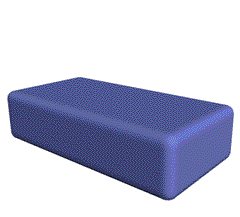
The Mental Design Model

The Mental Design Model
 |
addition
Suppose we want to design a simple couch. THe imagined material is polyurethane foam. We can imagine two parallelepipeds, one flattened acts as the seat, the other shortened as the backrest. The formula is A + B This operation in the Mental Design Model we would call an addition
+
Note that this operation created fissures between the components of the object |
|
|
|
 |
subtraction
Now we take a slightly different approach to our couch design. We can imagine a parallelopids, and a metaphysical knife that slides through it cutting a sector. The result is also a couch. The formula is A - B This operation in the Mental Design Model we would call an subtraction its symbol is - |
|
|
|
 |
transformation
A third way to imagine the couch in our imagination is by bending a flattened cube The formula is A x B This operation in the Mental Design Model we would call a transformation: its symbol is X
Note that in this operation all the edges are smooth, especially the one in the back. Also some wrinkles may appear between the seat sector and the backrest. |
| The three operations of the Mental Design Model are exhaustive. In reality they will mostly in numerous combinations. One hypothesis is that we, similar to logic analysis of verbal propositions, the mind 'reads' visual forms with this boolean algorithm. |
| The drawings and their animation were designed by Simone Paternich (drindrin@tin.it) |
back to the theory page